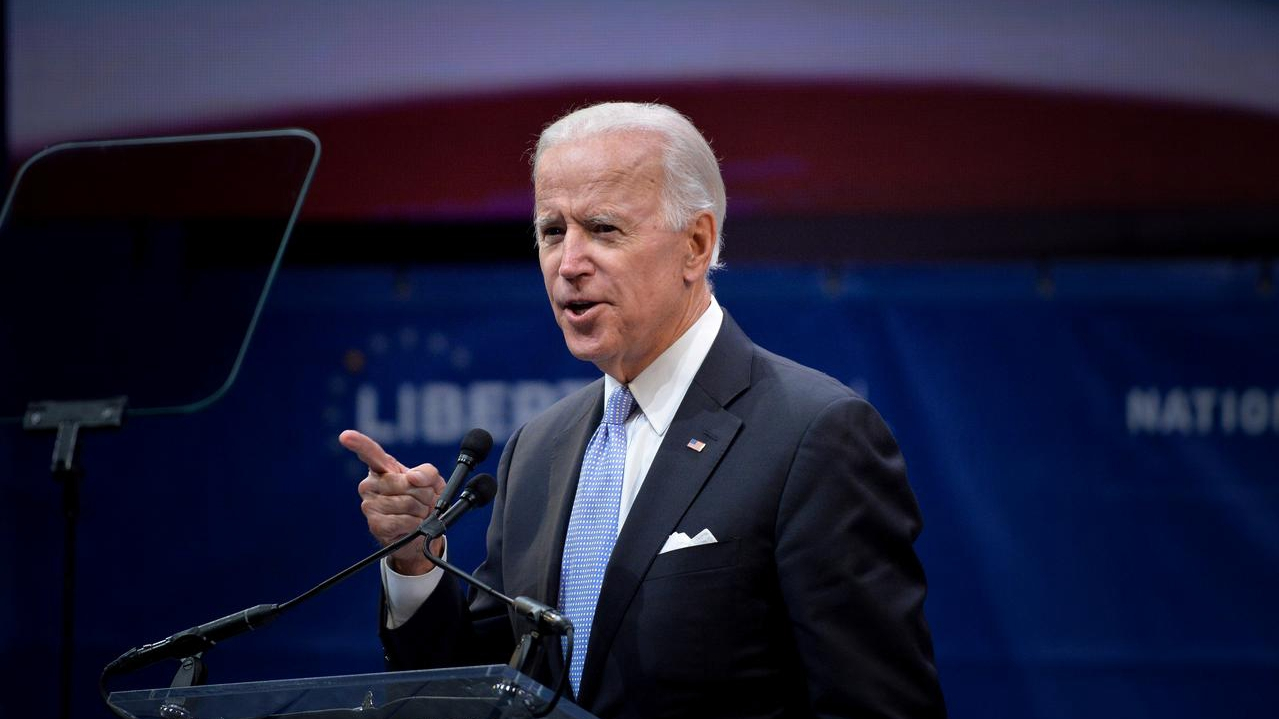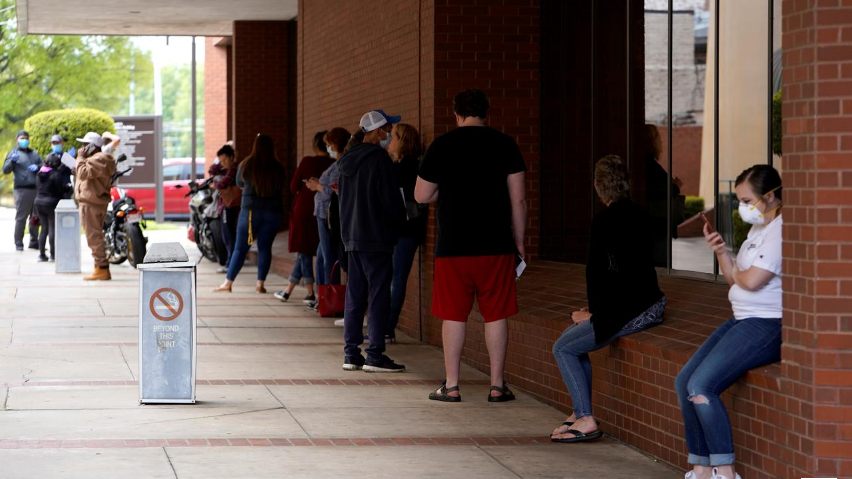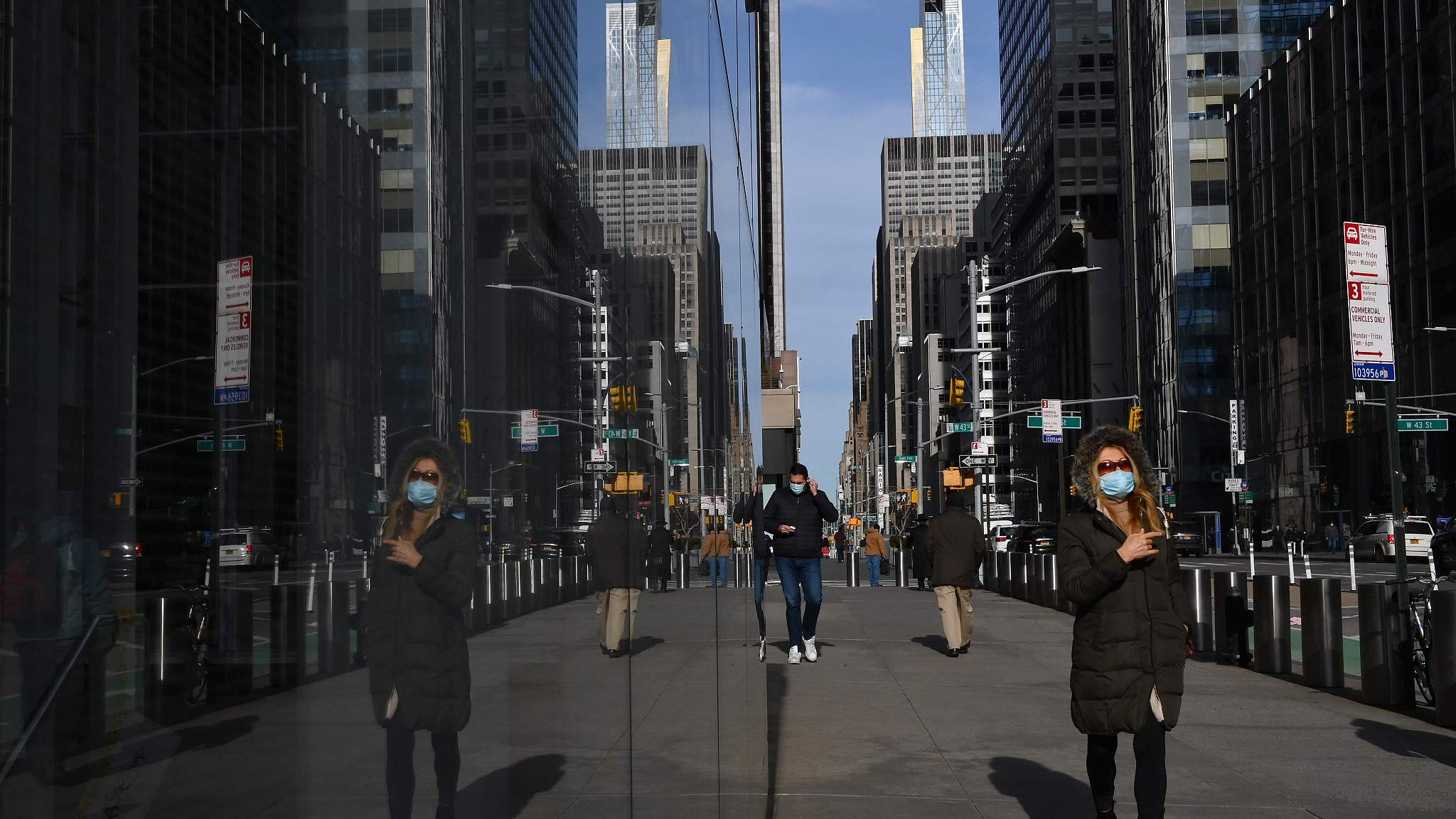
Editor's Note: Dani Rodrik, professor of International Political Economy at Harvard University's John F. Kennedy School of Government, is the author of "Straight Talk on Trade: Ideas for a Sane World Economy." The article reflects the author's opinions, and not necessarily the views of CGTN.
President Joe Biden's $2 trillion infrastructure plan is likely to be a watershed moment for the American economy, clearly signaling that the neoliberal era, with its belief that markets work best and are best left alone, is behind us. But while neoliberalism may be dead, it is less clear what will replace it.
The challenges that the United States and other advanced economies face today are fundamentally different from those they faced in the early decades of the twentieth century. Those earlier challenges gave rise to the New Deal and the welfare state.
Today's problems – climate change, the disruption of labor markets due to new technologies, and hyper-globalization – require new solutions. We need a new economic vision, not nostalgia for a mythicized age of widely shared prosperity at home and global supremacy abroad.
On climate change, Biden's plan falls short of the Green New Deal advocated by progressive Democrats such as Representative Alexandria Ocasio-Cortez. But it contains significant investments in a green economy, such as supporting markets for electric vehicles and other programs to cut carbon dioxide emissions, making it the largest federal effort ever to curb greenhouse-gases.
On jobs, the plan aims to expand employment offering good pay and benefits, focusing, in addition to infrastructure, on manufacturing and the growing and essential care economy.
New ways of thinking about the role of government are as important as new priorities. Many commentators have framed Biden's infrastructure plan as a return to big government. But the package is spread over eight years, will raise public spending by only one percentage point of GDP, and is projected to pay for itself eventually.
A boost in public investment in infrastructure, the green transition, and job creation is long overdue. Even if the plan were nothing more than a big public investment push financed by taxes on large corporations, it would do a lot of good for the U.S. economy.

People who lost their jobs wait in line to file for unemployment following the COVID-19 pandemic at an Arkansas Workforce Center in Fort Smith, Arkansas, U.S. April 6, 2020. /Reuters
People who lost their jobs wait in line to file for unemployment following the COVID-19 pandemic at an Arkansas Workforce Center in Fort Smith, Arkansas, U.S. April 6, 2020. /Reuters
But Biden's plan can be much more. It could fundamentally reshape the government's role in the economy and how that role is perceived. Traditional skepticism about government's economic role is rooted in the belief that private markets, driven by the profit motive, are efficient, while governments are wasteful. But the excesses of private markets in recent decades – the rise of monopolies, the follies of private finance, extreme concentration of income, and rising economic insecurity – have taken the shine off the private sector.
At the same time, it is better understood today that in a complex economy characterized by so much uncertainty, top-down regulation is unlikely to work. Regardless of the specific domain – promoting green technologies, developing new institutional arrangements for home-care workers, deepening domestic supply chains for high-tech manufacturing, or building on successful workforce development programs – government collaboration with non-governmental actors will be essential.
In all these areas, the government will have to work with markets and private businesses, as well as other stakeholders such as unions and community groups. New models of governance will be required to ensure public objectives are pursued with the full participation of those actors who have the knowledge and capacity to achieve them. The government will have to become a trusted partner; and it will have to trust other social actors in turn.
In the past, each excessive swing in the state-market balance has eventually prompted an excessive swing in the opposite direction. The Biden plan can break this cycle. If it succeeds, the example it sets of markets and governments acting as complements, not substitutes – demonstrating that each works better when the other pulls its weight – could be its most important and enduring legacy.

People walk through the midtown area of Manhattan, New York City, U.S., January 25, 2021 . /CFP
People walk through the midtown area of Manhattan, New York City, U.S., January 25, 2021 . /CFP
In this regard, it is unhelpful to view the Biden plan as a way to restore America's competitive position in the world, especially vis-à-vis China. Unfortunately, Biden himself is guilty of this framing. The package will "put us in a position to win the global competition with China in the upcoming years," he recently argued.
It may be politically tempting to market the infrastructure plan in this fashion. In an earlier era, the prevailing fear that the U.S. was losing its edge to the Soviet Union in ballistic missiles and in the space race helped catalyze a national technological mobilization.
But there is much less reason for fearmongering today. It is unlikely to buy much Republican support for the plan, given the intensity of partisan polarization. And it diverts attention from the real action: if the plan increases incomes and opportunities for ordinary Americans, as it should, it will have been worth doing, regardless of the effects on America’s geopolitical status.
Moreover, economics is different from an arms race. A strong U.S. economy should not be a threat to China, just as Chinese economic growth need not threaten America. Biden's framing is damaging insofar as it turns good economics at home into an instrument of aggressive, zero-sum policies abroad. Can we blame China if it tightens restrictions on U.S. corporations as a defensive measure against the Biden plan?
The plan could transform the U.S. and set an important example for other developed countries to follow. But to achieve its potential, it must avoid misleading state-versus-market dichotomies and outdated Cold War tropes. Only by leaving behind the models of the past can it chart a new vision for the future.
Copyright: Project Syndicate, 2021.
(If you want to contribute and have specific expertise, please contact us at opinions@cgtn.com.)

